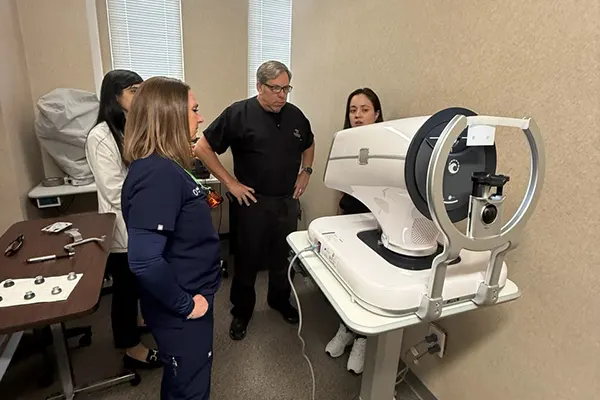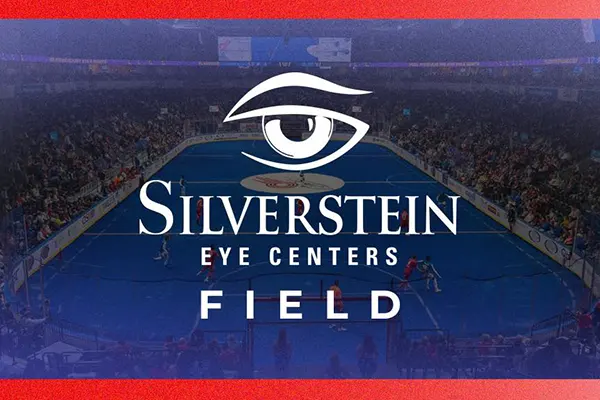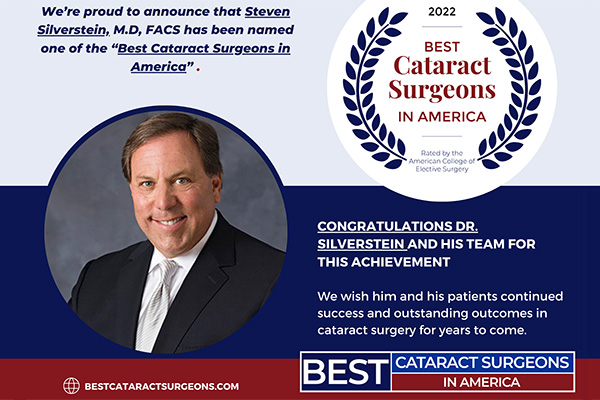What to Look for in an Ophthalmologist
What to Look for in an Ophthalmologist
You wouldn’t entrust the health of your eyes to just anybody. If you live in Kansas City, Missouri, and require cataract surgery or another optical procedure, it’s important to find a qualified eye doctor you can trust.
Cataracts are a clouding in the lens of the eye caused by aging and potentially exacerbated by genetic and lifestyle factors. To learn more about cataract surgery and what the ophthalmologists at Silverstein Eye Centers can do to improve your vision, please call 816-358-3600 today to schedule your initial consultation.
Ophthalmology Qualifications
Needless to say, you want to make sure anyone handling an organ as delicate and important as the eyeball has the experience and knowledge to give you the best care. Ophthalmologists must undergo extensive, specialized training before they can begin treating disorders of the eye. The basic credentials to become an ophthalmologist include:
- A college degree, probably in a pre-medical field, followed by a Doctor of Medicine (M.D.) degree from an accredited medical school
- During medical school, your doctor will have spent the first two years in general study of human anatomy, followed by two more years of hands-on learning as an intern in hospitals and other medical institutions
- Approximately four years as an ophthalmology resident, gaining detailed knowledge of the diagnosis and treatment of optical conditions
Extra Eye Experience
Some eye doctors undertake additional education and experience to specialize in specific ophthalmological practices. Cataract surgeons and other specialists can do a number of things to hone their optical abilities, including:
- Fellowships: A one-year program of study in a specialty area, such as cataract surgery
- Membership in professional organizations
- Becoming board-certified by the American Board of Ophthalmology
For example, Dr. Silverstein is a both board-certified ophthalmologist, fellow of the American College of Surgeons and belongs to a variety of professional organizations, including the American Medical Association and American Academy of Ophthalmology.
Eye Doctors Working in Tandem
Ophthalmologists often work alongside optometrists to provide a continuum of optical care. Both ophthalmologists and optometrists fall under the heading of “eye doctors,” with a few distinctions:
- In lieu of medical school, optometrists pursue a Doctor of Optometry (O.D.) degree at a college of optometry, where studies focus exclusively on the eyes (not general anatomy).
- After being licensed by the state, optometrists are licensed to perform eye exams, determine conditions affecting a person’s vision and prescribe corrective measures.
- Optometrists can also become more specialized through residencies in fields like vision correction, contact lenses, primary eye care, etc.
Because they conduct eye exams, an optometrist might be the first eye doctor to detect the presence and symptoms of cataracts.
If you want to learn more about cataract surgery and whether or not you’re a suitable candidate for the procedure, please contact Silverstein Eye Centers today. We are proud to serve patients in the Kansas City area.


